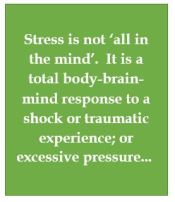Psychological First Aid –
A form of non-therapeutic, non-interrogative ‘counselling’/support during traumatic experiences
By Jim Byrne, Doctor of Counselling
Updated on 26th October 2022
~~~
 During the aftermath of the 9/11 bombings of the Twin Towers in New York City -in the later months of 2011 and the early months of 2012 – a lot a volunteer counsellors turned up and offered counselling to the trauma victims – the people who had escaped the buildings, the relatives of those who perished, the bystanders who had witnessed the horror of the collapsing building, with people jumping from windows to their death below.
During the aftermath of the 9/11 bombings of the Twin Towers in New York City -in the later months of 2011 and the early months of 2012 – a lot a volunteer counsellors turned up and offered counselling to the trauma victims – the people who had escaped the buildings, the relatives of those who perished, the bystanders who had witnessed the horror of the collapsing building, with people jumping from windows to their death below.
A couple of years later, the effects of that counselling on the people who were helped was assessed, and compared with the effects of not being helped with counselling at that time. The paradoxical finding was that the people who got relatively immediate counselling help fared worse than those people who were helped to safety, and allowed to digest the trauma slowly over time.
Out of this research came the concept of Psychological First Aid. There are lots of research papers on this subject, but one of the most succinct is that by Dr. Odelya Gertel Kraybill[1].
~~~

Once I heard of this research, I began to change my attitude towards clients who asked me for support with a traumatic experience. I always ask: When did this trauma happen?
If they say it was more than 18 months or two years ago, then I feel safe to offer them counselling and psychotherapy.
If they say ‘the trauma is ongoing’, or it happened less than 18 months ago, then I offer them Psychological First Aid, and I’m careful not to cause them to re-live any aspect of their current or recent trauma, because I believe that will have a negative effect at this early stage.
Here is an illustration of how I used this approach with a recent client who was diagnosed with a life-threatening illness; agree to painful, frightening surgery, and several post-surgical procedures which were also traumatizing. After our first meeting, I sent this email to that client:
~~~
Edited highlights of that email to my client
Hi (Name withheld),
 I think what we are doing at the moment, in supporting you with this difficult period of your life, is properly called ‘Psychological First Aid (PFA)’. I believe your body-mind will have been significantly stressed by
I think what we are doing at the moment, in supporting you with this difficult period of your life, is properly called ‘Psychological First Aid (PFA)’. I believe your body-mind will have been significantly stressed by
– the (acute, life-threatening disease) diagnosis (which you have received);
– the medical procedures (to which you have been subjected, including surgeries) thus far; and by:
– your concerns/anxieties for the future (including about your chances of surviving; and some of the post-surgery procedures).
PFA calls for action in five areas of your life:
 1. Establishing a sense of safety. I wanted to mention this as early as possible, because it would be good to factor this consideration into your decision-making about whether or not to move to (a city where medical procedures would be better than where you normally live).
1. Establishing a sense of safety. I wanted to mention this as early as possible, because it would be good to factor this consideration into your decision-making about whether or not to move to (a city where medical procedures would be better than where you normally live).
My primary questions for you include:
(a) Where would you feel safest?
(b) Is there any objective measure of how safe the two options are?
(c) You could try the (decision making) visualization exercise (which I sent to you) on this issue, and resolve the question for yourself.
You should aim to ensure that you feel as safe as possible as you move ahead. This also applies to the question of whether or not to move closer to the (named hospital).
And you may be able to establish a sense of safety by writing about your situation in your journal, and getting clear about what you can control and what is beyond your control; and learning to accept what cannot be changed!
~~~
2. Psycho-education. This is concerned with my providing you with accurate information about how stress and trauma affect people; and also your seeking such information from me and elsewhere.
 (a) The stress response: Stress is not ‘all in the mind’. It is a total body-brain-mind response to a shock or traumatic experience; or pressures that are greater than one’s (perceived) coping resources (at that time). A stress response means that the arousing side of the autonomic (automatic) nervous system has been activated. This arousing side of the autonomic nervous system if called the ‘sympathetic branch’ (but has nothing to do with ‘sympathy’ in the normal sense!) Stress hormones are released in the body, which prepares for fight or flight. The heart speeds up, and blood is sent to the large muscles to aid fight or flight. Digestion is switched off. Once activated, this state of over-arousal remains high, unless and until it is switched off. One way to switch it off is to take action; such as engaging in any kind of physical exercise. (I could also teach you the physical relaxation process that I use to keep myself calm in stressful situations). This has the effect of switching on the rest and digest response.
(a) The stress response: Stress is not ‘all in the mind’. It is a total body-brain-mind response to a shock or traumatic experience; or pressures that are greater than one’s (perceived) coping resources (at that time). A stress response means that the arousing side of the autonomic (automatic) nervous system has been activated. This arousing side of the autonomic nervous system if called the ‘sympathetic branch’ (but has nothing to do with ‘sympathy’ in the normal sense!) Stress hormones are released in the body, which prepares for fight or flight. The heart speeds up, and blood is sent to the large muscles to aid fight or flight. Digestion is switched off. Once activated, this state of over-arousal remains high, unless and until it is switched off. One way to switch it off is to take action; such as engaging in any kind of physical exercise. (I could also teach you the physical relaxation process that I use to keep myself calm in stressful situations). This has the effect of switching on the rest and digest response.
(b) The rest and digest response: This is the opposite of the stress response. It is also called the relaxation response. So it can be initiated by physical exercise, relaxation exercise, meditation, and in a number of other ways, such as focusing attention upon the fact that the threat has passed, and a safe haven has been found.
 (c) A quick review of available coping mechanisms: The mechanisms that people use to cope with stress include the following:
(c) A quick review of available coping mechanisms: The mechanisms that people use to cope with stress include the following:
– Physical exercise;
– Breathing techniques (mainly diaphragmatic breathing, also called ‘belly breathing’);
– Positive self-talk (or self-coaching);
– Relaxation (e.g. audio CD’s; plus Progressive Muscle Relaxation, which I can teach to you);
– Meditation;
– Journal writing.
– Managing your diet well; avoiding sugary, yeasty and junky foods; avoiding caffeine and alcohol; etc.
~~~
3. Identifying vulnerabilities: What do you perceive as your immediate vulnerabilities’?
What might be good ways to address them?
~~~
 4. Reconnecting to resources: What are your main resources for coping with your medical condition and the effects of that condition upon you and your life?
4. Reconnecting to resources: What are your main resources for coping with your medical condition and the effects of that condition upon you and your life?
Some will be internal, and link back to the resilience you can muster in your journal writing. Some may depend upon family members; or friends; communities; or local services. (Is there a group near you that provides support for your medical condition? Are there dedicated [Medical condition] Support Nurses?) In seeking support, it is important to make sure you do not hand over control of your life to anybody. It’s important that you feel you are in the driving seat; and have not ceded power to anybody else.
~~~
 5. Sustainability: What are your short term strategies and routines for emotional sustenance?
5. Sustainability: What are your short term strategies and routines for emotional sustenance?
Do you have a weekly plan?
What are the elements of your routines?
Are you able to exercise; and which form of exercise is best for you?
Also learn to practice Meditation/Relaxation and/or affirmations and/or visualizations?
Seeing friends (if you can get out and about; or being in remote contact otherwise)?
Having naps?
~~~

I may have overlooked some vital elements that you want to add to this list.
~~~
I hope this little review helps.
Perhaps it could inform some journal writing activities?
~~~
Best wishes, and take very good care of yourself! 🙂
Jim
 Dr Jim Byrne, Doctor of Counselling, Hebden Bridge, West Yorkshire, UK.
Dr Jim Byrne, Doctor of Counselling, Hebden Bridge, West Yorkshire, UK.
Email: Dr Jim’s email address
Telephone: 01422 843 629 (from inside the UK)
Or: 44 1422 843 629 (from outside the UK).
Or take a look at my Telephone/Skype/Email services, which are advertised as ‘Counselling’, but can also include ‘Psychological First Aid’.
~~~
[1] Kraybill, O.G. (2018) ‘When is Therapy Inappropriate After Trauma?’ Psychology Today, May 14, 2018; online: https://www.psychology today.com/gb/blog/expressive-trauma-integration/201805/ when-is-therapy-inappropriate-after-trauma
~~~
Dr Kraybill defined Psychological First Aid (PFA) as follows:
“Psychological First Aid (PFA) is a short term set of support strategies … to support survivors to meet (their) additional needs. PFA has have been found to be effective in mitigating stress responses and assisting survivors to develop skills in coping with the after effects of trauma.
“PFA provides immediate emotional support and care, gives information essential to understanding the psychological dynamics of stress and trauma, and connects people to needed resources. Various PFA frameworks exist. I’ve drawn on elements of several of them and field tested (them) in several countries…”
~~~
